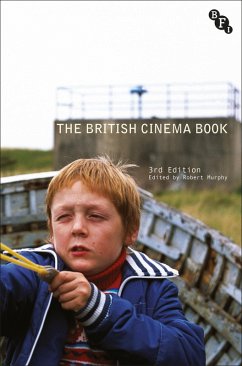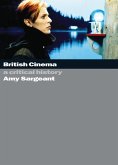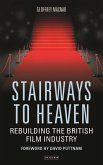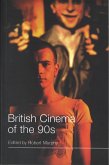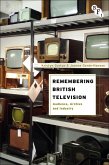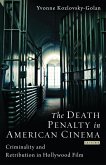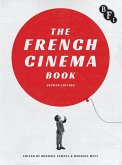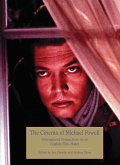The new edition of The British Cinema Book has been thoroughly revised and updated to provide a comprehensive introduction to the major periods, genres, studios, film-makers and debates in British cinema from the 1890s to the present. The book has five sections, addressing debates and controversies; industry, genre and representation; British cinema 1895-1939; British cinema from World War II to the 1970s, and contemporary British cinema.
Within these sections, leading scholars and critics address a wide range of issues and topics, including British cinema as a 'national' cinema; its complex relationship with Hollywood; film censorship; key British genres such as horror, comedy and costume film; the work of directors including Alfred Hitchcock, Anthony Asquith, Alexander Mackendrick, Michael Powell, Lindsay Anderson, Ken Russell and Mike Leigh; studios such as Gainsborough, Ealing, Rank and Gaumont, and recent signs of hope for the British film industry, such as the rebirth of the low-budget British horror picture, and the emergence of a British Asian cinema.
Discussions are illustrated with case studies of key films, many of which are new to this edition, including Piccadilly (1929) It Always Rains on Sunday (1947), The Ladykillers (1955), This Sporting Life (1963), The Devils (1971), Withnail and I (1986), Bend it Like Beckham (2002) and Control (2007), and with over 100 images from the BFI's collection.
The Editor: Robert Murphy is Professor in Film Studies at De Montfort University and has written and edited a number of books on British cinema, including British Cinema and the Second World War (2000) and Directors in British and Irish Cinema (2006).
The contributors: Ian Aitken, Charles Barr, Geoff Brown, William Brown, Stella
Bruzzi, Jon Burrows, James Chapman, Steve Chibnall, Pamela Church Gibson, Ian
Conrich, Richard Dacre, Raymond Durgnat, Allen Eyles, Christine Geraghty, Christine
Gledhill, Kevin Gough-Yates, Sheldon Hall, Benjamin Halligan, Sue Harper, Erik
Hedling, Andrew Hill, John Hill, Peter Hutchings, Nick James, Marcia Landy, Barbara
Korte, Alan Lovell, Brian McFarlane, Martin McLoone, Andrew Moor, Robert Murphy,
Lawrence Napper, Michael O'Pray, Jim Pines, Vincent Porter, Tim Pulleine, Jeffrey
Richards, James C. Robertson, Tom Ryall, Justin Smith, Andrew Spicer, Claudia
Sternberg, Sarah Street, Melanie Williams and Linda Wood.
Within these sections, leading scholars and critics address a wide range of issues and topics, including British cinema as a 'national' cinema; its complex relationship with Hollywood; film censorship; key British genres such as horror, comedy and costume film; the work of directors including Alfred Hitchcock, Anthony Asquith, Alexander Mackendrick, Michael Powell, Lindsay Anderson, Ken Russell and Mike Leigh; studios such as Gainsborough, Ealing, Rank and Gaumont, and recent signs of hope for the British film industry, such as the rebirth of the low-budget British horror picture, and the emergence of a British Asian cinema.
Discussions are illustrated with case studies of key films, many of which are new to this edition, including Piccadilly (1929) It Always Rains on Sunday (1947), The Ladykillers (1955), This Sporting Life (1963), The Devils (1971), Withnail and I (1986), Bend it Like Beckham (2002) and Control (2007), and with over 100 images from the BFI's collection.
The Editor: Robert Murphy is Professor in Film Studies at De Montfort University and has written and edited a number of books on British cinema, including British Cinema and the Second World War (2000) and Directors in British and Irish Cinema (2006).
The contributors: Ian Aitken, Charles Barr, Geoff Brown, William Brown, Stella
Bruzzi, Jon Burrows, James Chapman, Steve Chibnall, Pamela Church Gibson, Ian
Conrich, Richard Dacre, Raymond Durgnat, Allen Eyles, Christine Geraghty, Christine
Gledhill, Kevin Gough-Yates, Sheldon Hall, Benjamin Halligan, Sue Harper, Erik
Hedling, Andrew Hill, John Hill, Peter Hutchings, Nick James, Marcia Landy, Barbara
Korte, Alan Lovell, Brian McFarlane, Martin McLoone, Andrew Moor, Robert Murphy,
Lawrence Napper, Michael O'Pray, Jim Pines, Vincent Porter, Tim Pulleine, Jeffrey
Richards, James C. Robertson, Tom Ryall, Justin Smith, Andrew Spicer, Claudia
Sternberg, Sarah Street, Melanie Williams and Linda Wood.

